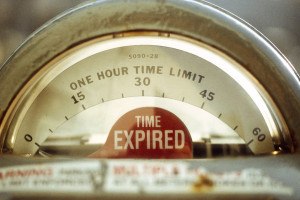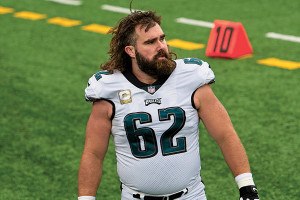From the Editor: April 2007
I like to think of this magazine as the chronicler of the soap opera that is the Philadelphia region. Like any good daytime drama, we have a recurring cast of characters; some are heroes, some are villains, and most reside in that fuzzy gray in between. One of the coolest things we’ve been able to do, over the years, is bring those characters to life for you on the page.
Brian Tierney is one of them. You may have first read about this boyish PR maven here in 1994, when writer Ronnie Polaneczky (now a terrific columnist at the Daily News) painted a telling portrait of a neurotic, controlling, ambitious 30-something who was taking the town by storm. Or you may have read about Tierney here in 2001, when Max Potter (now executive editor at 5280, Denver’s great city magazine) captured the hard-charging politico who was George W. Bush’s point man among Republican Catholics. Now comes Jason Fagone’s consideration of Tierney as he enters his self-described “legacy time.” When Tierney pulled off the seemingly impossible and bought the Inquirer last year, he went from being a high-priced mouthpiece to a player in his own right.
Those of us who have known Tierney through all those years and incarnations have to cop to a grudging admiration for his ability to sell a vision. He is, certainly, the consummate pitchman. But now, as Fagone documents, the stakes are far higher. Tierney is in charge of a vital civic institution at a time when our sense of community is ever dwindling. Think of it: As media consumers, we go from our satellite radios to our TiVo’d TV shows to our favorite websites, and we are inundated with information but have precious little interaction to help us make sense of all that data. That’s what a strong regional newspaper-of-record can still do, which Tierney seemed to understand when he first bought the Inquirer and Daily News, before all the layoffs and budget squeezes.
I have no idea if Tierney can bring back those days when a metropolitan daily helped create a pervasive sense of community, when newspapers linked us one to another; in fact, Fagone raises some questions as to whether that’s even Tierney’s ultimate goal. But I’m rooting like hell for Tierney to make the Inquirer something you can’t wait to get your hands on. (Yes, I’m old school; I still read a paper in the morning, with a cup of coffee.) Because nothing creates the sense that we’re all in this together like a heated discussion at the proverbial watercooler about “that story” in the paper this morning.
If you, like me, have had your heart broken by our sports teams more often than Philly pols get indicted, if you still lie awake nights wondering why the hell Danny Ozark didn’t pull Luzinski from left field in the ninth or what friggin’ Fregosi was thinking when he marched an exhausted Wild Thing out there in the ’93 Series — hey, we won’t even mention ’64; I still have relatives who won’t say the year, or whisper it the way they talk about someone with cancer — then you understand what I’ve done with my fanaticism these past couple of years: I entered self-protective mode. I used to think suffering as a fan was character-building. A few hundred Pat Burrell strikeouts cured me of that.
I’ve decided there’s nothing wrong with being a front-running fan. When my teams leave me, I let them go. When they come back — i.e., win, or at least play with the verve and excitement I’d bring to the game, if only I were coordinated — I’m there to enjoy them. So that’s where I am with these Phils. Now that Ryan Howard’s infectious love for the game feels so palpable, as captured by Robert Huber on page 76, I feel it’s safe for me to return to the Phils. They may not win, but they won’t be dour and miserable. Huber’s evocative piece on our slugger has me feeling something I haven’t felt in years: excited for Opening Day.


